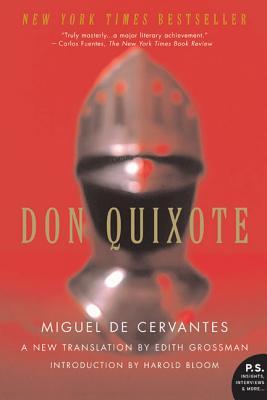- Author
- William Faulkner
I enjoyed The Hamlet more than The Sound and The Fury. Fury just required too much work on the readers part. The story was brilliant but the payoff was not worth the work over all. The Hamlet, while still requiring some work on the readers part to dive past the colloquial language of the dialog, appreciate the setting and, to some extent, deal with the modernist [wikipedia.org] style elements.
The Hamlet is about the invasion of a small mythical southern every-town; Frenchman’s Bend, by the Snopes family. Detailing a number of Snopes’ and their eccentricities while relying on the non-Snopes character of Ratliff to provide grounded commentary and continuity. The Hamlet is mostly a comic novel, in places laugh-out-loud funny, set against the not so funny experience of life in the post reconstruction South.
I think that, like most of Faulkner‘s [wikipedia.org] books the Americana is more than a surface veneer. I don’t find Faulkner’s stories to be timeless, place-less classics. Rather they are a specific meditation on the times and situations of the post-reconstruction American South. I have a hard time imagining how anyone who has lived their entire life in New York City could come close to appreciating Faulkner’s writing, much less how someone from another country could appreciate them in any great depth. The fact that the books do sell and are liked by people from outside the South amazes me. But they are, and Falkner did win the Nobel Prize for Literature. So…
I have two tenuous connections to Faulkner’s South, one general and the other specific. Generally, I grow up in rural Virginia, the South lite, and spent time in my grandparents house in Alabama, the South by any measure. This helped me to penetrate the language of The Hamlet enough to allow me to read the book in a fluid, natural way without struggling over the language used by the characters, making back and forth dialog enjoyable (as opposed to the Sisyphean effort require to digest the dialog in Ulysses [confusion.cc].) More specifically, I grew up in Charlottesville, home to UVA where Faulkner was “Writer in Residence” twice in 1957 and 1958. How I managed to read so little Faulkner in school (just The Bear short story to my recollection) is a mystery to me.
Interestingly, and perhaps contrary to what I say above, my post-high-school re-introduction to Faulkner came in the form of a friend who grew up in New York City. After moving to C’ville and living in a ‘house-too-far-back-in-the-woods’, in his own words, he moved downtown (such as it is) and became obsessed for a time with reading about the old South. Faulkner was his main source. It did nothing to dispel his fears of being molested in the woods by some Deliverance-esque hicks. Despite confirming his worst fears about the nature of southerners, my friend enjoyed Faulkner immensely enough that his recommendation put Faulkner on my list of to-reads. It only took me 11 years to get around to reading any.





